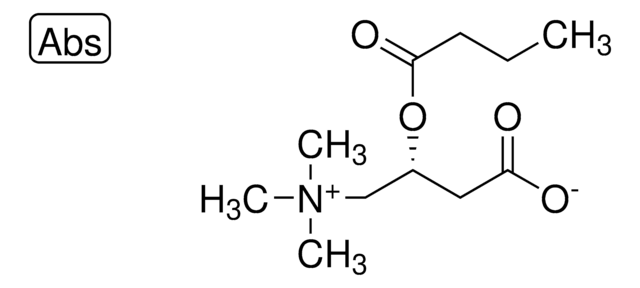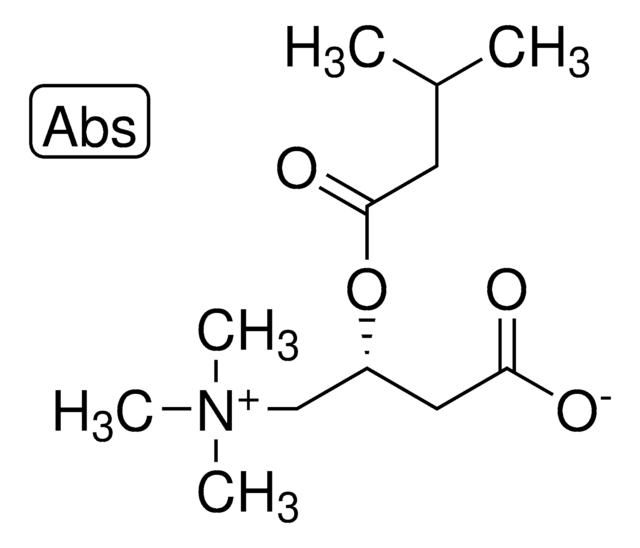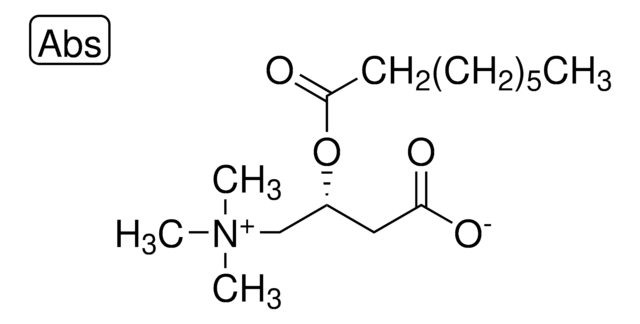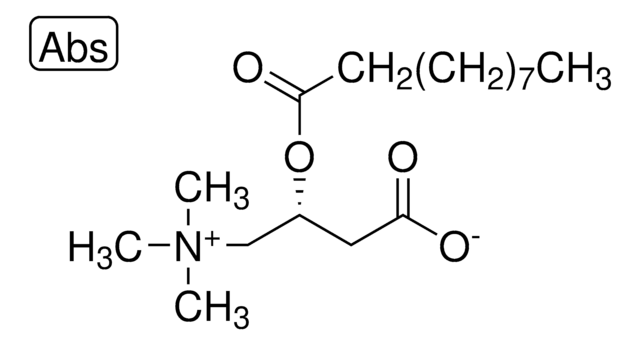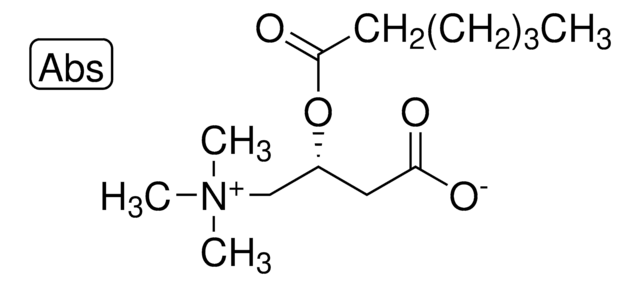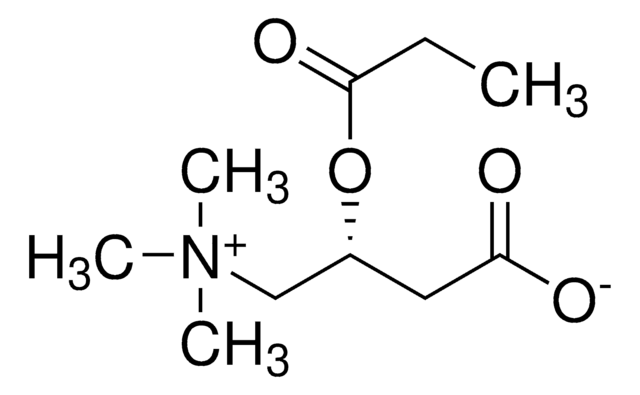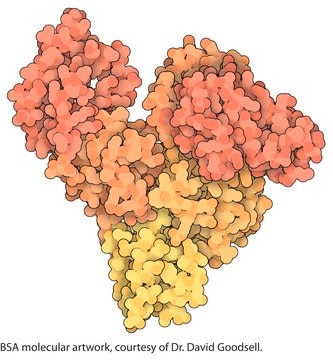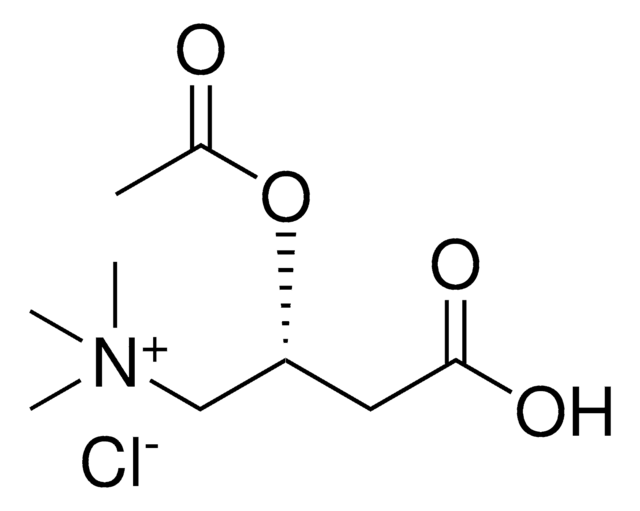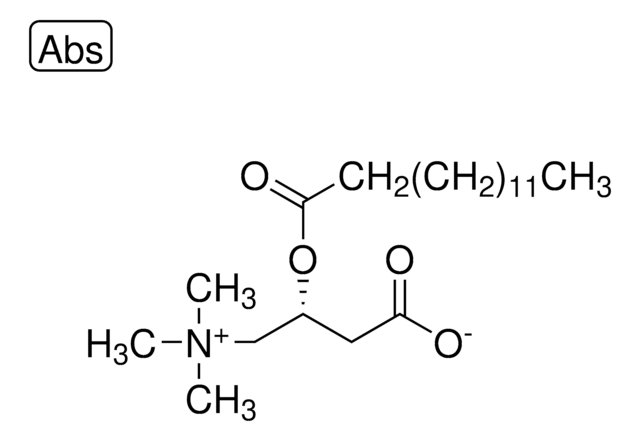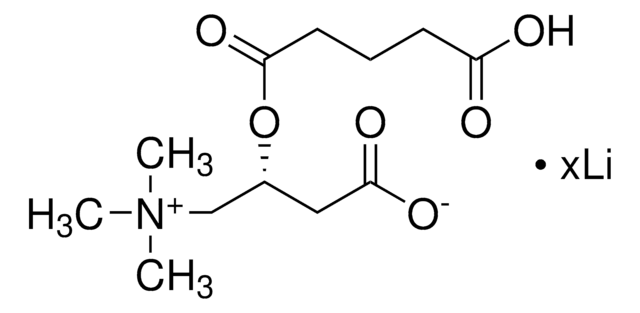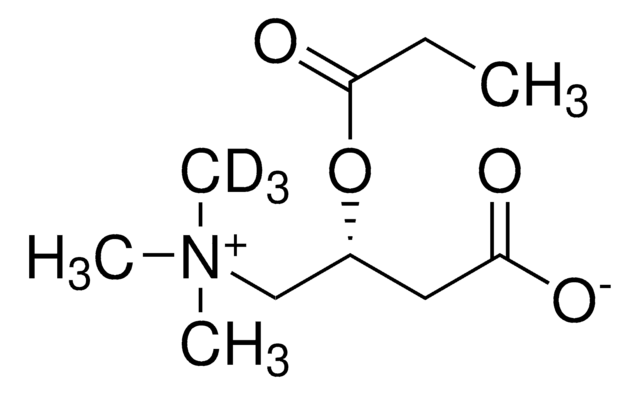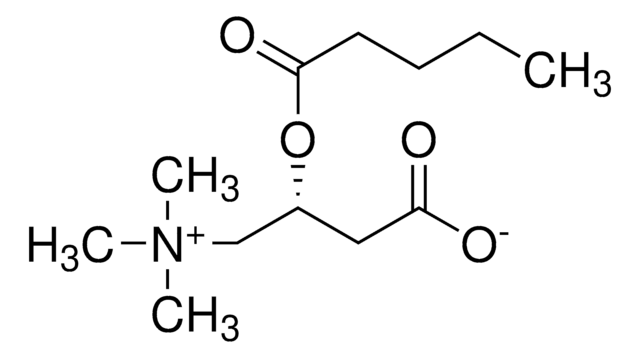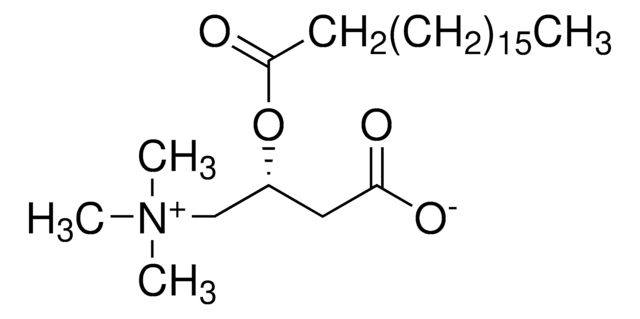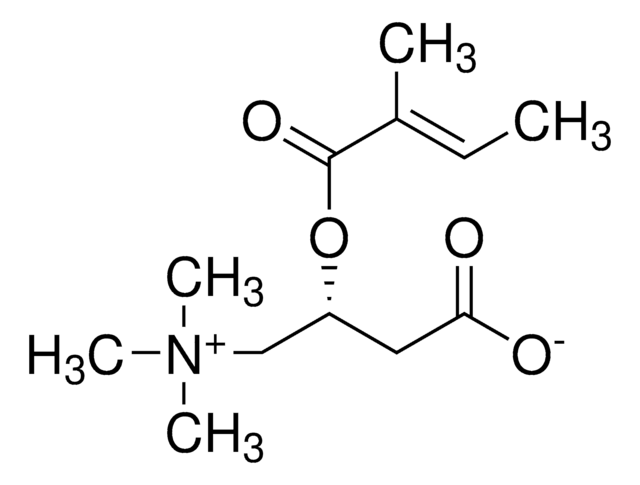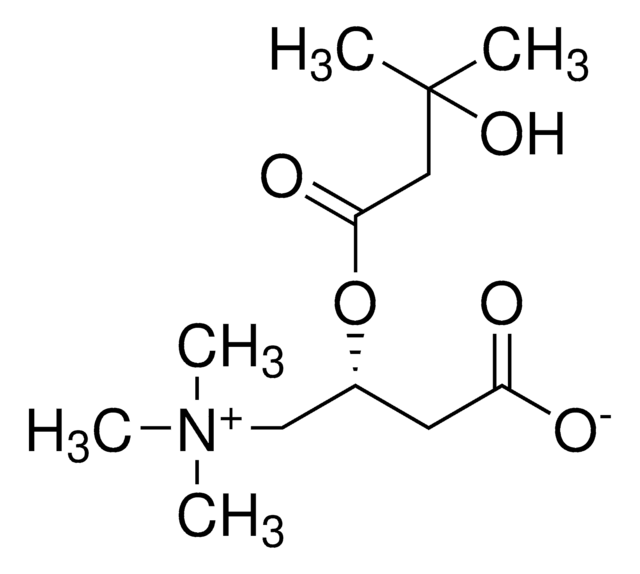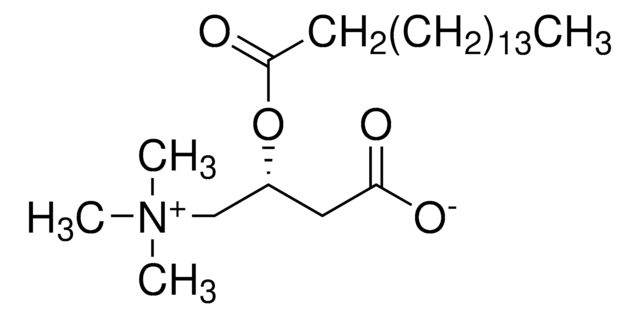42623
Butyryl-L-carnitine
≥97.0% (TLC)
Synonym(s):
(2R)-3-Carboxy-N,N,N-trimethyl-2-(1-oxobutoxy)-1-propanaminium inner salt, Butanoyl-L-carnitine, C4-Carnitine
About This Item
Recommended Products
product name
Butyryl-L-carnitine, ≥97.0% (TLC)
Quality Level
Assay
≥97.0% (TLC)
form
powder, crystals or chunks
optical activity
[α]/D -23±2°, c = 1 in H2O
color
white to off-white
storage temp.
2-8°C
SMILES string
C[N+](C)(C)C[C@H](OC(CCC)=O)CC([O-])=O
InChI
1S/C11H21NO4/c1-5-6-11(15)16-9(7-10(13)14)8-12(2,3)4/h9H,5-8H2,1-4H3/t9-/m1/s1
InChI key
QWYFHHGCZUCMBN-SECBINFHSA-N
Looking for similar products? Visit Product Comparison Guide
Related Categories
Application
- Lead exposure induces metabolic reprogramming in rat models.: This study by Mani MS et al. investigates the metabolic effects of lead exposure in rat models, focusing on the biochemical pathways affected. The research highlights the role of butyryl-ʟ-carnitine in counteracting lead-induced metabolic disruptions, suggesting its potential therapeutic applications in mitigating heavy metal toxicity (Mani et al., 2020).
Biochem/physiol Actions
WGK
WGK 3
Flash Point(F)
Not applicable
Flash Point(C)
Not applicable
Certificates of Analysis (COA)
Search for Certificates of Analysis (COA) by entering the products Lot/Batch Number. Lot and Batch Numbers can be found on a product’s label following the words ‘Lot’ or ‘Batch’.
Already Own This Product?
Find documentation for the products that you have recently purchased in the Document Library.
Customers Also Viewed
Our team of scientists has experience in all areas of research including Life Science, Material Science, Chemical Synthesis, Chromatography, Analytical and many others.
Contact Technical Service